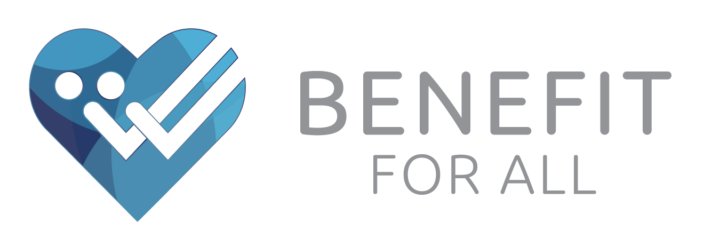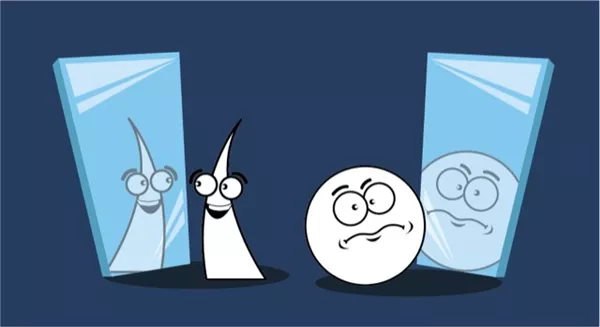Making eHealth accessible to vulnerable groups
eHealth plays a key role in the prevention of chronic diseases and in maintaining a healthy lifestyle. The aim of the Medical Delta eHealth & self-management for a healthy society scientific program is to create solutions to reach vulnerable groups and to create custom integrated eHealth solutions.
Vulnerable groups are difficult to reach and consist of people with lower socioeconomic status (SES) or people with multiple diseases, conditions or disorders at the same time. They often do not have access to suitable solutions. It is important to learn more about how these people become motivated to adopt a healthy lifestyle.
Benefit for All
 An integrated program, such as the Benefit for All program, rewards people for their healthy lifestyle. They receive points for everything they do, including logging into the app. The focus of the program is that short-term success is not the most important thing, but it is the long-term that counts. The consortium members of the Medical Delta program are closely involved with Benefit for All, which is currently making a large subsidy application for further research.
An integrated program, such as the Benefit for All program, rewards people for their healthy lifestyle. They receive points for everything they do, including logging into the app. The focus of the program is that short-term success is not the most important thing, but it is the long-term that counts. The consortium members of the Medical Delta program are closely involved with Benefit for All, which is currently making a large subsidy application for further research.
 Related to Benefit for All is Medical Delta-funded research on Inclusive eHealth. Within this project *, which is led by Prof. Andrea Evers, two PhD students are currently researching the development and evaluation of guidelines to better connect eHealth to vulnerable groups. Special in the approach to arrive at the guidelines is that a bottom-up approach ('which eHealth does someone find useful in a low SES environment') and a top-down approach ('which eHealth do the experts and developer find useful')? intersect.
Related to Benefit for All is Medical Delta-funded research on Inclusive eHealth. Within this project *, which is led by Prof. Andrea Evers, two PhD students are currently researching the development and evaluation of guidelines to better connect eHealth to vulnerable groups. Special in the approach to arrive at the guidelines is that a bottom-up approach ('which eHealth does someone find useful in a low SES environment') and a top-down approach ('which eHealth do the experts and developer find useful')? intersect.
Healthy Storytelling
Another way to reach vulnerable groups is through storytelling. The research group "healthy storytelling" (project leader Dr. Valentijn Visch) won the "Onze Taal @DRONGO Prize" at the end of October with their first demonstrator, the e-health game "Bal en Spriet". Researchers ** from TU Delft, Erasmus MC and Radboud University developed the game to make adults with low health skills and low literacy aware of prejudices about obese people and to make obesity a topic for discussion.
A second demonstrator that is being developed within the project is the website DikkeOnzin.org of IDE graduate Sam van Eijck. This website provides information on weight causes and practical tools for discussing weight in social partner relationships. A third demonstrator that focuses on learning about weight causes is currently being developed in collaboration with RANJ and the Municipality of Rotterdam.
Project leader Dr Valentijn Visch (TU Delft) and Professor Prof. Andrea Evers (LU) are both Scientific Leader at Medical Delta eHealth & self-management for a healthy society and active in healthy storytelling research. The Pharos Foundation and the Red Cross Hospital are also involved.

Opening a conversation about obesity
Prejudice and shame are oppressive for obese people. The game Bal en Spriet makes the subject open to discussion, thereby raising awareness about related stigmatization. In doing so, it opens up the discussion about weight causes and prevention, which is a first step in preventing overweight.
The game combines a board game - a kind of goose game - with an app full of assignments and stories. The stories are about situations that overweight people have experienced, which creates more understanding of them. “The stories are, for example, about someone who is overweight and who takes the elevator to the first floor instead of the stairs. At first, you would think that he should have taken the stairs until he says he has knee problems and there is no other option, ”says Visch. "Players are challenged to put themselves in characters with and without overweight and have to think about how they interact."
Not every pound goes through the mouth
The stories were collected through conversations with overweight people and supplemented with stories from the literature and media and compiled on the basis of conversations with experts and experts. From these stories, the researchers concluded that weight and body size are often taboo subjects and that overweight people regularly feel stigmatized. Visch: “The general assumption is that we can fully control our weight ourselves, but that is only partly true: genetic predisposition, hormones, medication, stress and a seductive environment can be very decisive, for example. Meanwhile, overweight people are being looked at. Stigmatization, exclusion and shame then create a barrier to talk about it and do something about it. A vicious circle arises that is difficult to get out of without help. The game tries to break that circle. ”
The game was previously tested by players at festivals and in an obesity clinic. Among other things, it is investigated whether the game actually causes self-reflection: with regard to own prejudices and with regard to (well-intentioned) behaviour that can appear stigmatizing. After an evaluation, the intention is that the game will be introduced on a large scale. For example, the municipality of Rotterdam is examining whether the final version of the game can participate in the 'Lekker Fit' program of this municipality.
The Healthy Storytelling research group is funded by ZonMW. More information can be found here.
* Universiteit Leiden (Isra Al-Dahir, Andrea Evers, Thomas Reijnders,), LUMC (Niels Chavannes), Erasmus MC (Hans Bussmann, Rita van den Berg-Emons), TU Delft (Jasper Faber, Jos Kraal, Valentijn Visch), Capri Hartrevalidatie.
** TU Delft fac. Industrial Design (Niko Vegt, Annemiek van Boeijen, Valentijn Visch ), Erasmus MC (Liesbeth van Rossem, obesity expert), Universiteit Leiden (Andrea Evers, eHealth specialist), Radboud University (Wilbert Spooren, storytelling specialist), foundation OverGewicht, foundation Pharos, RANJ serious gaming, municipality of Rotterdam.
